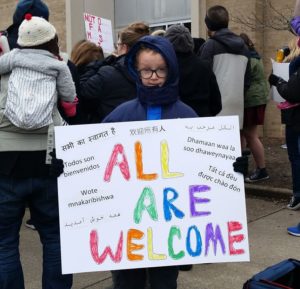 One of the strongest suggestions for authors is to avoid politics on social media so you don’t offend your readers. If you follow me on Twitter or Facebook, you’ll notice that I do not follow this advice. Here’s why, in no particular order (as well as why I won’t stop):
One of the strongest suggestions for authors is to avoid politics on social media so you don’t offend your readers. If you follow me on Twitter or Facebook, you’ll notice that I do not follow this advice. Here’s why, in no particular order (as well as why I won’t stop):
- Professional obligations. I’m currently in a social work PhD program. Although I’m not currently a licensed social worker (hopefully I’ll have time to take the test and get my LMSW this summer), I still follow the National Association of Social Workers’ Code of Ethics, which calls on us to advocate on the behalf of our clients. When crappy things happen that adversely affect my clients, I’ll speak out about it.
- Personal impact. This goes along with #1. A lot of politics affects me personally – like when the Iowa House did away with collective bargaining for state employees (including graduate students), which means that there’s a good chance I’ll lose my tuition scholarship and healthcare for next year. Politicians listen to their constituents, at least at a local/state level. Speak out for me and I’ll speak out for you.
- Client, friends, and family impact. Here’s another anecdote – a Sudanese woman in my grad program went back to Sudan to visit her dying mom over Christmas break. She made it back to the States two days before the travel ban went into effect. Had she not been allowed into the country where she’d lived for the past ten years, she would’ve been separated from her husband and three kids. I share issues that effect the people in my life, because chances are they’re affecting the people in your life too.
- Setting an example. My son loves politics and history. By speaking out, I’m showing him that it’s possible to change the course of history through your actions.
- Lack of awareness. Lots of people aren’t aware of what policies are being enacted and repealed, as well as how those policies are being followed. By letting people know what the issues are, hopefully they can help find a solution.
- My book content. I write about a lot of social issues. The Futility of Loving a Soldier is about veterans’ issues. Yours to Keep or Throw Aside deals with domestic violence. “A Place to Die” focuses on end-of-life care. “Us, Together” touches on the impact of poverty on children. If you’re offended by my posts, chances are you wouldn’t like my books either.
These are just a few brief reasons I’m political. And until the bad hombres in charge get their acts together and stop taking away needed programs and infringing upon our rights, I’m going to keep posting. And writing about it too.
* * * * * * *
What are your thoughts on authors getting political?


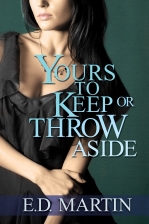
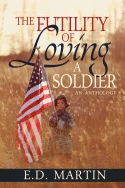
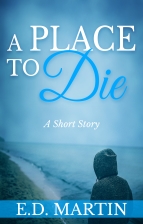
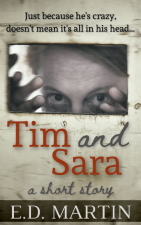
I can empathise. I find it difficult not to be political. I write a lot of queer fiction, I write about trauma and other mental health issues, I write about gender roles, cycles of violence and toxic masculinity. All those issues are both personal and political. However, I also try hard to be compassionate online, pick my battles, and not lose my temper, as I think there is a lot of abusive behaviour online (on both extremes of the political spectrum) and I don’t want to be part of making the world a more violent and hateful place.
Above all, authors are people – they have opinions. Even those who write pure escapism, like me, have opinions. There are many, many authors who use their fame for opinion, i.e., Stephen King, for one.
It can sometimes be a ‘slippery slope’ for new authors – but, silencing anyone’s opinion is just … wrong. Sorta like amending our constitution and getting rid of free speech.
I agree with Ambrose, I don’t want to make more hate either. However, if an author, or anyone else, has a legitimate opinion, there is absolutely nothing wrong with voicing same.